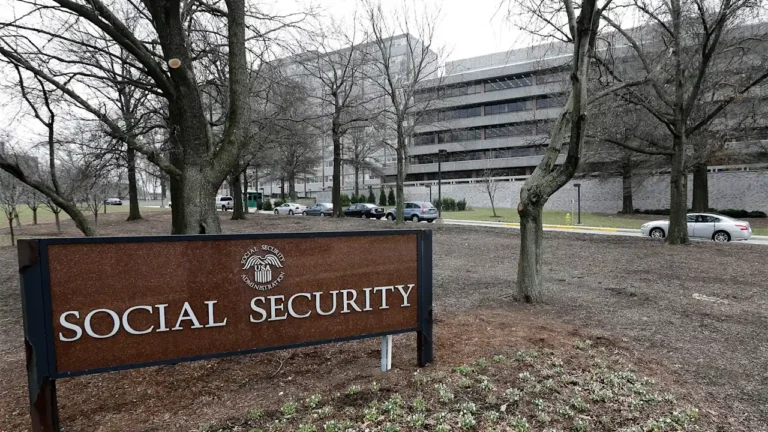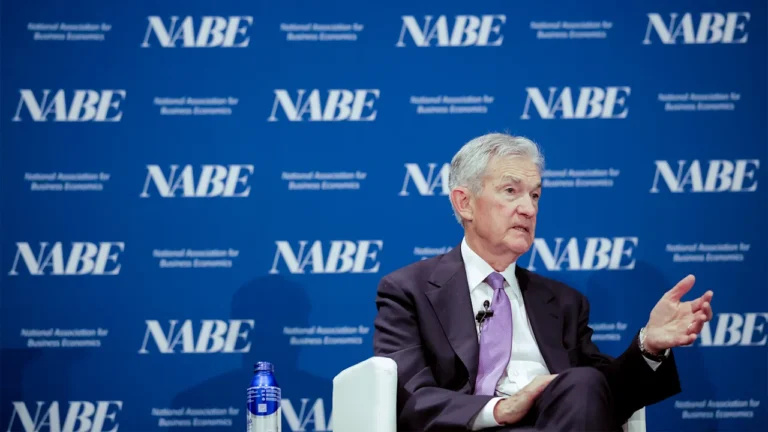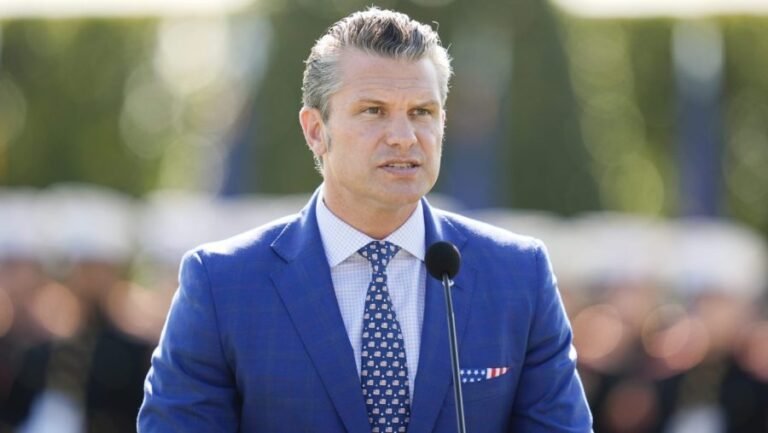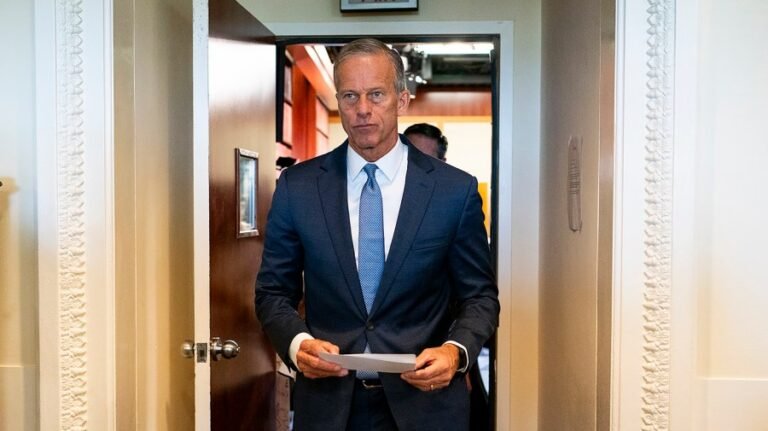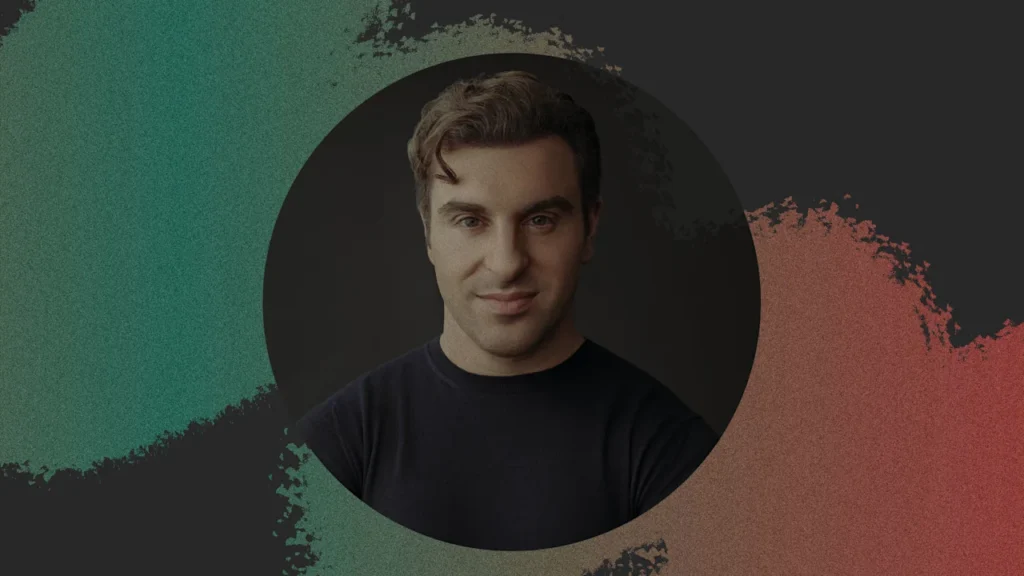
Amid dramatic disruption, what role should business play in building the future? Airbnb cofounder and CEO Brian Chesky shares his candid perspective on business, politics, creativity, and AI—tracing from Airbnb’s humble beginnings to bold plans for the company’s future. Through a designer’s lens, Chesky also reveals the single question leaders must ask themselves, and explores how best to make tricky decisions in a volatile climate.
This is an abridged transcript of an interview from Rapid Response, hosted by Robert Safian, former editor-in-chief of Fast Company, and recorded live at the 2025 Masters of Scale Summit in San Francisco. From the team behind the Masters of Scale podcast, Rapid Response features candid conversations with today’s top business leaders navigating real-time challenges. Subscribe to Rapid Response wherever you get your podcasts to ensure you never miss an episode.
Your cofounder, Joe Gebbia, now works at the White House as the chief design officer, although you were not among the cohort of tech CEOs who had dinner with Donald Trump there. What’s the state of the conversation between you and your peers about how to navigate this new administration, this new environment? I mean, it’s incredibly tricky to know what to do. And I don’t even know how you’re going to answer this question.
I don’t know either, actually. So let’s see. Silicon Valley’s gotten more political. And when I came to Silicon Valley, maybe it was more left, but it kind of felt more moderate. And it didn’t feel as much like it was as political. I do think that another thing that I am noticing is people are running toward a certain administration, obviously Trump. There’s a very good chance there will be a new administration in three years, maybe not, but let’s say there’s a 50/50 chance of a new administration. And I’m kind of curious: Do they run the other way, and do the worlds swing back and forth?
And I think there’s a lot of swinging. There was all this focus on DEI, and then there was all this focus to roll it all back. And there’s all this focus to go here, and now there’s all this focus to go here. And it’s like back and forth and back and forth. I think I try to imagine what will still be true in 20 years. What do we believe in? Because whatever’s true in 20 years are our principles and our values, and everything else is just a trend. Everything else is just trying to fit in. Everyone else is just rushing to whatever is popular at that current time.
And so I think every company just has to ask themselves what do they stand for? What are their values? And I think I try to be pretty clear about what we stand for. And so I try not to wade into too many political topics unless I feel like I have something to add to the conversation, and it’s something that is connected to our vision or our values. I mean, the other thing about politics is, we’re trying to bring the world together. That’s what I’d like to do. The problem with politics—I don’t have a better system, but it’s 50-plus-one. You have to divide them and get plus one. And it is inherently a divisive thing, and Airbnb’s mission is inherently unifying.
Do you know the number of Trump supporters who stayed in a house of a Kamala Harris supporter over the course of the election? Millions. Do you know the number of Democrats, Republicans that live together and don’t even know they’re Democrats and Republicans? When you travel, it’s one of the few times in your life that you’re truly open-minded. Even prejudice, people with prejudice, don’t have prejudice when they travel because they’re in someone else’s land and they’re now open-minded. You don’t talk to the Uber driver in your own city, but you do in another city. You have a completely different orientation. Travel brings out the best in you.
And there’s this ancient hospitality. It started with the ancient Egyptians, started with the Greeks, that the guest is God and we’re going to serve them. And so I try to zoom out. I try to focus a little less on divisive issues and say the best way to change someone else’s mind about other people in a time that’s really divided is to walk in their shoes, to live in their home, and to bring people together and remind people that basically . . . I’ve learned two lessons after having started Airbnb: People are fundamentally good, and we’re 99% the same. And you read the newspaper and you engage in political discourse and you can forget that we’re basically all the same. And if that wasn’t true, we would have been out of business a long time ago. And so that’s why I’m very careful about falling and treading into politics. We will, but very selectively.
And these swings that you talk about—where it swings from one way to the other—how do you keep yourself from getting caught up in those? Because there’s a lot of pressure sometimes behind those.
Well, I stay off Twitter a little—or X—a little bit. And I mean, there’s this temptation to want to participate in every conversation and to feel like you have to have an opinion and wade into everything. And actually, I try not to have opinions about things that I don’t know a lot about until I learn about them.
I think there was a period of time where people in tech felt like we had to have a statement about every single issue. That was quite a burden, though, because either you learn about the issue or you’re just jumping on a bandwagon. You don’t really know, and you’re not really informed. So I just try to make sure I tell the company, “We are going to be thoughtful as a company. We’re not going to swing back and forth. We’re going to do whatever we think is the right thing to do.”
Yeah. You talked to me before about the difference between a business decision and a principle decision.
A business decision is like trying to gamify the outcome to win. A principle decision is, I don’t know how it’s going to end, so how do I want to be remembered irrespective of the outcome? And if you do that, it’s another way of doing whatever you think the right thing to do is, whatever you think is true. And maybe you lose in the short run, you lose the battle, but you win the war. Because ultimately, you’re rarely going to get out of business because you stick to your principles and your values. And people want to work for a company like that, and we want to buy products from people who lead in that way.
What do you think Airbnb’s role is in building the future? And for the folks who are sitting in this room, what’s the role that they should be taking in building the future?
I like to ask an entrepreneur a question: “Why does your company deserve to exist?” And the best kind of generic answer I’ve ever heard is: “Because if I don’t do it, no one else will.” And I like to ask that question to myself. What could we uniquely do that if we don’t do it, anyone else will? And I think that we’re just this particular company and we were naive to believe that people are basically good, and it was a good idea to have a stranger in your home.
And ultimately, I think that what we’re trying to build, again, is this global community because I think communities are eroding all over the world. I think we have a place in this world to do something unique. I think that design is a hugely underleveraged superpower. I think it’s going to be really important in the age of AI. I think for every business leader, I think that you should ask: “If you never existed, what would be different about the world? What is your unique imprint to do?”
I say this because I think a lot of people like to chase trends. And by the way, by the time it’s a trend, sometimes it’s late. Once it has a name, it’s late. Although AI will go on forever, so that one might be different. So then what in AI? What in AI, because everything’s AI at some point? What is not AI?
So I think business leaders should focus on a unique contribution they can make. I think we are in building mode. I think it’s going to be so revolutionary. You ask, is it a new house or a renovation? I think it’s a new house. I think that’s exciting. I think it’s slightly scary.
